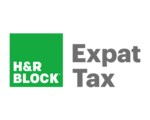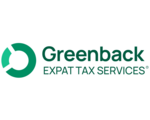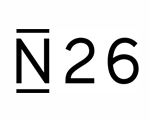So, you’re moving country? Whether for a short or long period, the chances are that you will probably need to move some cash. The following information might seem a little complicated, but you don’t have to be an investment banker to understand it and it could be 5 minutes well-invested to save you some cash in the future.
Bids, mids, offers and spreads (!)
"Why can I not change my money at the rate I see on television or in the newspaper?" The simple answer is that you almost can, but you will need to be moving over a million pounds/dollars/euros at a time. If that’s the case, you probably have people that look after that sort of thing and will not be reading this webpage! The price you usually see quoted in the media is the ‘mid-price’.
If you look at the rates in a bank or currency exchange shop you will see a price they buy at (the 'bid') and a price they sell at (the 'offer'). The difference between the two is the ‘spread’. Whatever amount of money you are changing, there will always be a difference between the mid-price and the price you get – this is someone’s profit for supplying you the service of exchanging the money.
So how do I move money?
The easy solutions (using your credit card, bank or currency exchange in the airport) will almost certainly not get you the best rate of exchange for your money. However, for short trips abroad or small amounts of money, they are the most convenient and accessible.
For larger amounts of money, the best solution for moving money is to use a specialist foreign exchange broker. A specialist will be able to get you an exchange rate nearer to the mid-price and also be able to offer services that may fit your individual requirements better than a straight currency exchange.
Buying a house or a car?
OK you’ve got a bit of cash, but are planning to spend it on something useful like a house or importing a car, but still can’t afford to get burnt on exchange rates. When it comes to commitments involving large amounts of money, a little bit of advance planning can save money and avoid big problems later. Exchange rates can be very volatile and large, rapid shifts in the value of one currency against another are not uncommon.
Think about this scenario: you have just found a great deal for a dream retirement home being built in the sun. You need to pay 10% now and 90% on completion, which will be in 9-12 months. Maybe you would prefer to keep your money invested until your new home is completed, are waiting to cash in a pension or first need to sell your existing home to get all the cash free. The problem comes it that you know how much this will cost you in your home currency if you make the purchase today, but have no idea what this will be tomorrow, never mind in 9 months time. To reduce your risk you could make a contract to buy the foreign currency at a fixed price on a fixed date – this is called a ‘forward’. You will normally need to put down 10% of the contract value as ‘margin’. This means you can guarantee in your own currency how much the house will cost, while not having to supply all of the money immediately.
There are various other financial tools that can be used to for different circumstances. The best thing to do is discuss your situation with a specialist foreign exchange broker. A professional in this area will be able to understand your situation and suggest solutions - a good one will also be able to explain them clearly!




